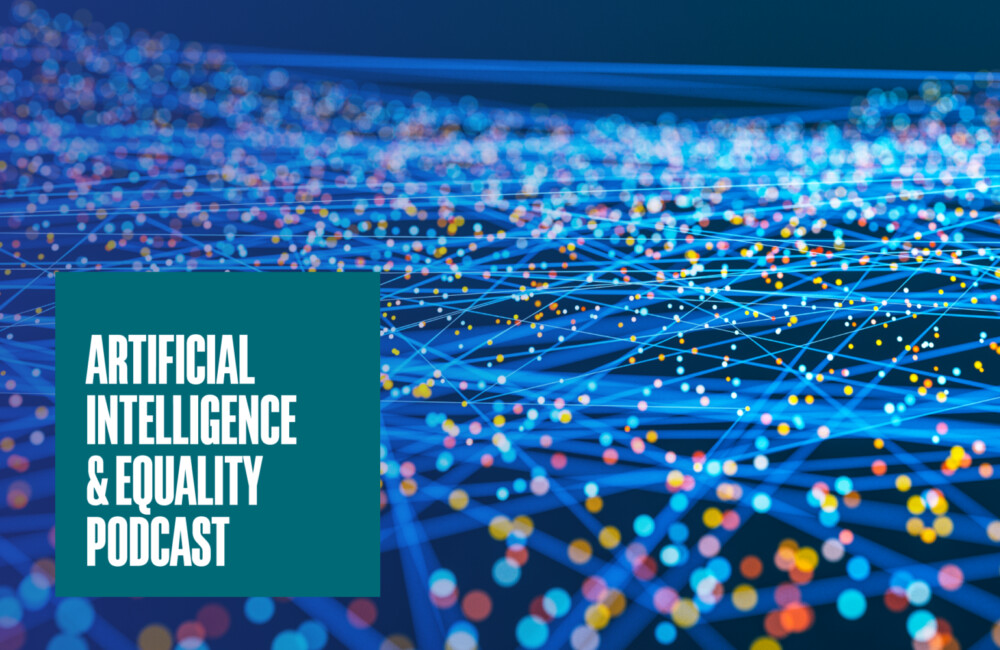Framing ethical perspectives
Applied ethics refers to the practical applications of the moral principles that govern behavior. Carnegie Council focuses on this field, mostly through the realm of international affairs, by identifying and addressing the most critical ethical issues of today and tomorrow. Our initiatives, content, and experts analyze the way that governments, institutions, and individuals interact and make choices on global issues, such as climate change, emerging technology, and governance.
Featured Applied Ethics Resources
Practical conversations, decision analysis, and more
MAY 10, 2022 • Podcast
Making Decisions When Values Conflict or Are Prioritized Differently, with Paul Root Wolpe
JUL 5, 2023 • Article
A Framework for the International Governance of AI
Carnegie Council, in collaboration with IEEE, proposes a five-part AI governance framework to enable the constructive use of AI.
APR 12, 2022 • Podcast
Surveillance Tech's Infinite Loop of Harms, with Chris Gilliard
In this discussion with Senior Fellow Arthur Holland Michel, Chris Gilliard explains why the arc of surveillance technology and novel AI bends toward failures that ...
Related Initiatives
Carnegie Ethics Accelerator
The Carnegie Ethics Accelerator is a new kind of incubator designed to empower ethics in the face of swiftly evolving challenges in technology and public policies.
Ethics & International Affairs Journal
Ethics & International Affairs is the quarterly journal of Carnegie Council. It aims to close the gap between the theory and practice of ethics.
Carnegie Ethics Fellows
The Carnegie Ethics Fellows program (CEF) seeks to cultivate the next generation of ethical global leaders across business, policy, technology, NGOs, and academia.
Explore Our Applied Ethics Resources

FEB 24, 2020 • Podcast
The Future of Artificial Intelligence, with Stuart J. Russell
UC Berkley's Professor Stuart J. Russell discusses the near- and far-future of artificial intelligence, including self-driving cars, killer robots, governance, and why he's worried that ...

FEB 13, 2020 • Podcast
Who Controls the Global Thermostat? with C2G's Janos Pasztor
With record-breaking winter warmth in Europe, catastrophic fires in Australia, and deadly flooding in Indonesia, we are deep into a climate crisis. In this wide-ranging ...
FEB 11, 2020 • Podcast
Killer Robots, Ethics, & Governance, with Peter Asaro
Peter Asaro, co-founder of the International Committee for Robot Arms Control, has a simple solution for stopping the future proliferation of killer robots, or lethal ...
FEB 4, 2020 • Podcast
Do Morals Matter? Presidents & Foreign Policy from FDR to Trump, with Joseph Nye
How much do morals matter for U.S. presidents when it comes to international affairs? What are the ethics of "America First" or 2003 invasion of ...

JAN 31, 2020 • Article
Global Internet, Global Regulations
This essay written by Zahra Niazi is the third prize winner of the undergraduate category in the 2019 student essay contest. If cyberspace is an international ...

JAN 31, 2020 • Article
Sharing is Caring: Governing the Internet
This essay written by Sasa Jovanovic is the second prize winner of the undergraduate category in the 2019 student essay contest. What are the benefits of ...

JAN 31, 2020 • Article
IF Internet — THEN Free
This essay written by Evgeny Nedoborskiy is the first prize winner of the undergraduate category in the 2019 student essay contest. If we want to preserve ...

JAN 31, 2020 • Article
Internet Regulations Are the Superbugs of Speech
This essay written by Jennifer Baek is the third prize winner of the high school category in the 2019 student essay contest. What can we learn ...

JAN 31, 2020 • Article
Internet Regulation: The Responsibility of the People
This essay written by Justin Oh is the second prize winner of the high school category in the 2019 student essay contest. What have data and ...

JAN 31, 2020 • Article
Big Data, Surveillance, and the Tradeoffs of Internet Regulation
This essay written by Seungki Kim is the first prize winner of the high school category in the 2019 student essay contest. Should internet users be ...





